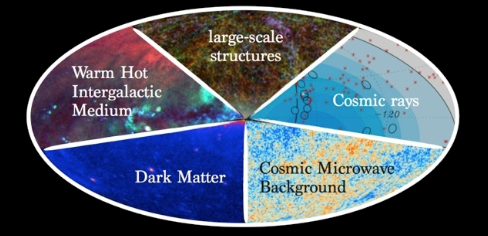Speaker
Kimberly Emig
(Leiden Observatory)
Description
The IceCube Neutrino Observatory has provided the first map of the high energy (∼ 0.01 – 1 PeV) sky in neutrinos. Since neutrinos propagate undeflected, their arrival direction is an important identifier for sources of high energy particle acceleration. We present a statistical analysis of positional coincidences of the IceCube neutrinos with known astrophysical objects from several catalogs. When considering starburst galaxies with the highest flux in gamma-rays and infrared radiation, up to n = 8 coincidences are found, representing an excess over the ∼4 predicted for the randomized, or “null” distribution. The probability that this excess is realized in the null case, the p-value, is p = 0.042. This value falls to p = 0.003 for a partial subset of gamma-ray-detected starburst galaxies and superbubble regions in the galactic neighborhood. Therefore, it is possible that starburst galaxies, and the typically hundreds of superbubble regions within them, might account for a portion of IceCube neutrinos.
Author
Kimberly Emig
(Leiden Observatory)
